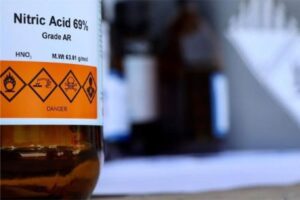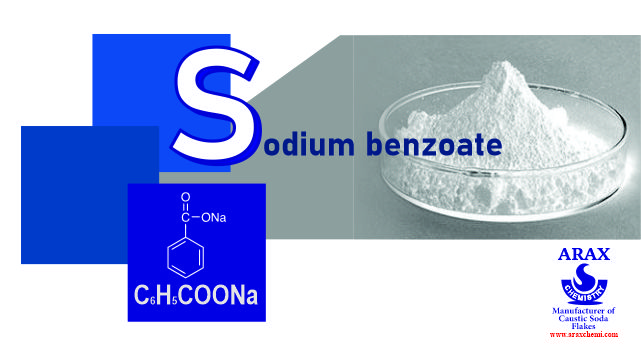Sodium Benzoate Uses
Sodium benzoate is a substance that has a chemical formula C6H5COONa. It is a widely used food pickling agent, with an E number of E211. It is the sodium salt of benzoic acid and exists in this form when dissolved in water. It can be produced by reacting sodium hydroxide with benzoic acid.
What Is Sodium Benzoate?
sodium benzoate uses

Sodium benzoate is a preservative added to some sodas, packaged foods, and personal care products to prolong shelf life.
Some people claim that this man-made additive is harmless, while others link it to cancer and other health problems.
This article provides a detailed overview of sodium benzoate, including its uses and possible safety concerns.
Sodium benzoate is best known as a preservative used in processed foods and beverages to extend shelf life.
It’s an odorless, crystalline powder made by combining benzoic acid and sodium hydroxide. Benzoic acid is a good preservative on its own, and combining it with sodium hydroxide helps it dissolve in products.
Sodium benzoate does not occur naturally, but benzoic acid is found in many plants, including cinnamon, cloves,
tomatoes, berries, etc. Additionally, certain bacteria produce benzoic acid when fermenting dairy products like yogurt.
Sodium Benzoate Uses in Different Industries
Aside from its use in processed foods and beverages, it is also added to some medicines, cosmetics, and industrial products. Here’s a closer look at its many functions.
Foods and Beverages
Sodium benzoate is the first preservative the FDA allowed in foods and is still a widely used food additive.
It’s classified as Generally Recognized as Safe (GRAS), meaning that experts consider it safe when used
as intended It’s approved internationally as a food additive and is assigned the identifying number 211.
For example, it’s listed as E211 in European food products.

Sodium benzoate inhibits the growth of potentially harmful bacteria, mold, and other microbes in food,
thus deterring spoilage. It’s particularly effective in acidic foods. Therefore, it’s commonly used in foods,
such as soda, bottled lemon juice, pickles, jelly, salad dressing, and other condiments.
Sodium Benzoate Uses in Medications
Sodium benzoate is used as a preservative in some over-the-counter and prescription medications,
particularly in liquid medicines like cough syrup. it can be a lubricant in pill manufacturing and makes tablets smooth, helping them break down rapidly after you swallow. Lastly, larger amounts of sodium benzoate may be prescribed to treat elevated blood levels of ammonia. Ammonia is a byproduct of protein breakdown, and blood levels may become dangerously high in certain medical conditions.
Other Uses
Sodium benzoate is commonly used as a preservative in cosmetics such as hair products, baby wipes, toothpaste, and mouthwash. It also has industrial uses. One of its biggest applications is to deter corrosion, such as in coolants for car engines.
Possible Health Problems
Some people are generally leery of all chemical additives, including sodium benzoate. Preliminary studies raise questions about its safety, but more research is needed.
Converts to a Potential Cancer Agent
A large concern over the use of sodium benzoate is its ability to convert to benzene, a known carcinogen.
Benzene can form in soda and other drinks that contain both sodium benzoate and vitamin C (ascorbic acid). Notably, diet beverages are more prone to benzene formation, as the sugar in regular sodas and fruit drinks may reduce its formation. Other factors, including exposure to heat and light, as well as longer storage periods, can increase benzene levels.
Particularly, fruit-flavored diet sodas and juice drinks exceeded 5 ppb of benzene. Since then, these ten drinks have either been reformulated to yield acceptable levels or have had sodium benzoate removed entirely. The FDA has not published more recent product analyses but has stated that the low levels of benzene found in beverages don’t pose a health risk. Still, long-term studies assessing the relationship between regularly consuming low levels of benzene and cancer risk are lacking.
Other Potential Health Concerns
Preliminary studies have evaluated other possible risks of sodium benzoate, which include:
Inflammation: Animal studies suggest that sodium benzoate can activate inflammatory pathways in the body in direct proportion
to the amount consumed. This includes inflammation-promoting cancer development.
Attention Deficit Hyperactivity Disorder (ADHD): A study of college students linked ADHD with a higher intake of sodium benzoate
in beverages. The additive has also been linked to ADHD in children in some studies.
sodium benzoate uses
Appetite control: In a test-tube study of mouse fat cells, exposure to sodium benzoate decreased the release of leptin,
an appetite-suppressing hormone. The decrease was 49–70%, in direct proportion to the exposure.
Oxidative stress: Test-tube studies suggest that the higher the concentration of sodium benzoate, the freer radicals are created.
Free radicals can damage your cells and increase chronic disease risk.
Allergies: A small percentage of people may experience allergic reactions — such as itching and swelling — after consuming
foods or using personal care products that contain sodium benzoate. More research, particularly in people, is needed to confirm
these initial findings.
Could Have Medicinal Benefits
Sodium benzoate uses: In larger doses, sodium benzoate may help treat certain medical conditions.
The chemical reduces high blood levels of the waste product ammonia, such as in people with liver disease or inherited urea
cycle disorders — conditions that limit the excretion of ammonia via urine.
Furthermore, scientists have identified ways by which sodium benzoate may have medicinal effects, such as by binding unwanted compounds or affecting the activity of certain enzymes that increase or decrease levels of other compounds). Other potential medicinal uses of sodium benzoate that are being researched include:
Schizophrenia: In a six-week study in people with schizophrenia, 1,000 mg of sodium benzoate daily alongside standard drug therapy reduced symptoms by 21% compared to placebo. A similar study also showed benefits.
Multiple sclerosis (MS): Animal and test-tube studies suggest that sodium benzoate may slow MS progression. This may include stimulating myelin production, the protective nerve covering damage in MS.
Depression: In one six-week case study, a man with major depression given 500 mg of sodium benzoate daily had
a 64% improvement in symptoms.
Maple syrup urine disease: This inherited disease inhibits the breakdown of certain amino acids, making urine smell like syrup.
A study on one toddler found intravenous (IV) sodium benzoate to help in a crisis phase of the disease.
Panic disorder: When a woman with panic disorder — is characterized by anxiety, abdominal pain, chest tightness, and palpitations.
it took 500 mg of sodium benzoate daily, her panic symptoms were reduced by 61%. Despite potential benefits, sodium benzoate
can have side effects, including nausea, vomiting, and abdominal pain.
sodium benzoate uses
Additionally, medicinal doses of sodium benzoate may deplete your body of the amino acid carnitine, which plays a critical role
in energy production. This may make it necessary to take a carnitine supplement. For these reasons, sodium benzoate is only given
as a prescription medication in carefully controlled doses and with ongoing monitoring.
ARAX CHEMISTRY is a great manufacturer of Caustic Soda Flakes, Aluminum Sulfate, and Copper Sulfate
that can offer its High-quality products.
